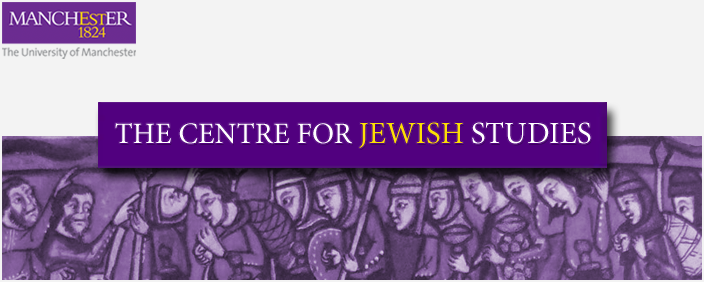9. Other Forms of Zionism
Mizrachi and Poale Zion
 Manchester was an early centre of religious Zionism in England. An international organisation called Mizrachi (from the Hebrew Merkaz Ruhani or "Spiritual Centre") had existed since 1902, whose sacred duty was to ensure the building of Eretz Yisrael as the National Home of the Jewish People on the basis of Traditional Judaism. Although several attempts had been made in London to start Mizrachi groups, the movement only really took off in England following the first national conference of Mizrachi in Manchester (December 1918), which led to the opening of the Mizrachi Bureau in London. The conference, held at the Grosvenor Hotel, was organised almost single-handedly by Rabbi Israel Yoffey, who had furthered the cause of religious Zionism since his appointment at the Central Synagogue in 1897. Yoffey preached Zionism from the pulpit (mainly in Yiddish) in spite of some criticism, targeted the ultra-orthodox with success, and was an effective fund-raiser. His was highly active in promoting religious education among the young in Manchester, and was also influential in establishing Mizrachi societies in Glasgow, Sunderland and Sheffield. Tragically, he died in Alexandria, on the way to Israel in 1934.
Manchester was an early centre of religious Zionism in England. An international organisation called Mizrachi (from the Hebrew Merkaz Ruhani or "Spiritual Centre") had existed since 1902, whose sacred duty was to ensure the building of Eretz Yisrael as the National Home of the Jewish People on the basis of Traditional Judaism. Although several attempts had been made in London to start Mizrachi groups, the movement only really took off in England following the first national conference of Mizrachi in Manchester (December 1918), which led to the opening of the Mizrachi Bureau in London. The conference, held at the Grosvenor Hotel, was organised almost single-handedly by Rabbi Israel Yoffey, who had furthered the cause of religious Zionism since his appointment at the Central Synagogue in 1897. Yoffey preached Zionism from the pulpit (mainly in Yiddish) in spite of some criticism, targeted the ultra-orthodox with success, and was an effective fund-raiser. His was highly active in promoting religious education among the young in Manchester, and was also influential in establishing Mizrachi societies in Glasgow, Sunderland and Sheffield. Tragically, he died in Alexandria, on the way to Israel in 1934.
Weizmann, despite sending a message of support to the 1918 conference, feared and opposed the Mizrachi. He regarded it as the enemy within because he felt that it fostered the sort of nationalism that would eventually lead to religious dogmatism.
 Manchester was also an early centre for Socialist Zionism. Poale Zion (Hebrew "Workers of Zion") was formed in Austria, following the Sixth Zionist Congress (1903). Despite the fact that at the turn of the century, most Jews were Liberal, branches of Poale Zion were soon established in London, Manchester, Liverpool, Leeds and Glasgow. The first British conference of the Poale Zion was held in Manchester (April 1906). Speakers from Manchester included Rabbi Wassilevsky and Mr Sadofsky. Leon Locker was an early leading figure in the Manchester Poale Zion, and the spirit of the city branch is illustrated by his conviction that "We Jews have got to solve the national question before we can solve the Socialist question." It was not a large nor a terribly focussed society, however. In the early 1930s, at a meeting with only twelve people present, four of whom were speakers, the debate raged ‘Would Herzl have put on a tephillin if he’d known its importance?’
Manchester was also an early centre for Socialist Zionism. Poale Zion (Hebrew "Workers of Zion") was formed in Austria, following the Sixth Zionist Congress (1903). Despite the fact that at the turn of the century, most Jews were Liberal, branches of Poale Zion were soon established in London, Manchester, Liverpool, Leeds and Glasgow. The first British conference of the Poale Zion was held in Manchester (April 1906). Speakers from Manchester included Rabbi Wassilevsky and Mr Sadofsky. Leon Locker was an early leading figure in the Manchester Poale Zion, and the spirit of the city branch is illustrated by his conviction that "We Jews have got to solve the national question before we can solve the Socialist question." It was not a large nor a terribly focussed society, however. In the early 1930s, at a meeting with only twelve people present, four of whom were speakers, the debate raged ‘Would Herzl have put on a tephillin if he’d known its importance?’
In contrast to his attitude to the religious Zionists, Weizmann always regarded the national Poale Zion movement with respect and with a measure of envy due to its popularity.
 Later prominent members included the Labour councillors and mayors Leslie Lever and, especially, Bernard Langton.
Later prominent members included the Labour councillors and mayors Leslie Lever and, especially, Bernard Langton.
__________________________
IMAGE AND DOCUMENT CREDITS: Rabbi I Yoffey (© Manchester Jewish Museum), Leslie Lever (M Dobkin, More Tales of Manchester Jewry), Bernard Langton (© Jewish Gazette) Full reference: Sources.




